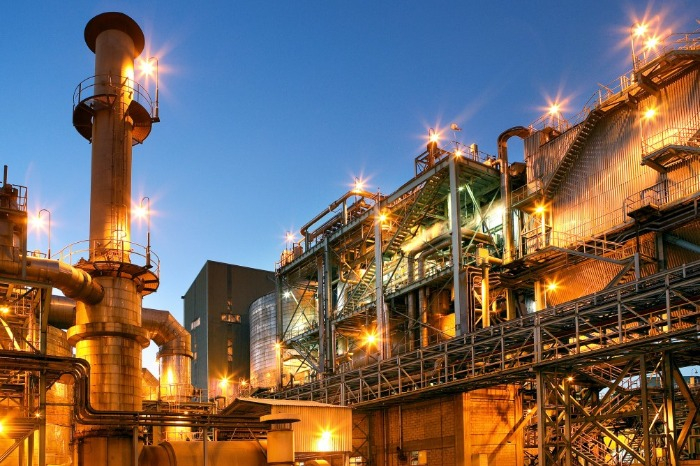Korea Zinc speeds up separation from Young Poong in management feud
The zinc smelter now dominates the boardroom of metal trading unit Sorin, minimizing Young Poong's influence on the firm
By Jun 21, 2024 (Gmt+09:00)
When in S. Korea, it’s a ritual: Foreigners make stops at CU, GS25, 7-Eleven


Maybe Happy Ending: A robot love story that rewrote Broadway playbook


NPS yet to schedule external manager selection; PE firms’ fundraising woes deepen


US auto parts tariffs take effect; Korea avoids heavy hit


NCSOFT invests in US game startup emptyvessel



South Korea’s largest zinc smelter Korea Zinc Co. is accelerating its efforts to terminate its decades-long business relations with parent Young Poong Group by dominating the boardroom of group affiliate Sorin Corp.
Korea Zinc said on Thursday that it nominated four new board members, including four executives of the zinc smelting company and its subsidiary, and reappointed Korea Zinc Honorary Chair Choi Chang-geun, whose term on the board had ended, at the general shareholders’ meeting.
Through the reshuffle, nine of the 10 board members of Sorin are executives of Korea Zinc and its affiliates, while one is Young Poong Group Advisor Chang Hyung-jin.
Sorin, which trades the non-ferrous metals of Young Poong Group’s Young Poong Corp. and Korea Zinc, has been a key unit of the two companies’ business partnerships. Korea Zinc and affiliated persons own 66.7%, while Youngpoong holds 33.3% of the company.
Korea Zinc is accelerating its business separation from Young Poong Group by strengthening its control over the Sorin boardroom.
Meanwhile, Chang Se-hwan, grandson of the group’s late founder Chang Byung-hee, has resigned from his post as Sorin's chief executive after his 10-year term beginning in 2014.
Korea Zinc said that it is difficult to maintain the partnership with Young Poong via Sorin given trading and sales issues due to Young Poong’s production cuts and a smelter suspension after it exceeded the legal limit for water pollutant discharge early this year.
Since its launch in 1949, Young Poong Group’s two major affiliates have been largely run by two families -- one by the Chang family, which controls Young Poong and electronic parts affiliates; and the other by the Choi family, which controls Korea Zinc and non-electronics subsidiaries.
But the conflicts between the two family groups have intensified as Korea Zinc, Young Poong Group’s cash cow, has issued new shares for Hyundai Motor Group and swapped treasury stocks with Hanwha Group and LG Chem Ltd. since 2022.
Korea Zinc Chair Choi Yun-birm, who stepped down as co-CEO of the zinc smelter in March, led increasingly friendly shareholders for the Choi family through rights offerings during his five-year term.
Sorin posted 17.5 billion won ($12.6 million) in operating profit and 1.53 trillion won in revenue last year. It 196.4 billion won worth of transactions with Korea Zinc and 30.9 billion won with Youngpoong.
The trading company manages several affiliates in Singapore, Indonesia, India, Thailand and the United Arab Emirates for non-ferrous metal and chemical sales.
Write to Hyun-Woo Oh at ohw@hankyung.com
Jihyun Kim edited this article.
-
 Corporate investmentKorea Zinc to invest $146 mn in green business R&D hub
Corporate investmentKorea Zinc to invest $146 mn in green business R&D hubMay 13, 2024 (Gmt+09:00)
3 Min read -
 BatteriesLG Chem, Korea Zinc JV to mass-produce EV battery materials
BatteriesLG Chem, Korea Zinc JV to mass-produce EV battery materialsApr 17, 2024 (Gmt+09:00)
2 Min read -
 Waste managementKorea Zinc buys US Kataman for $55 mn for recycling business
Waste managementKorea Zinc buys US Kataman for $55 mn for recycling businessApr 01, 2024 (Gmt+09:00)
1 Min read -
 Waste managementKorea Zinc, LG Chem team up for US recycling business
Waste managementKorea Zinc, LG Chem team up for US recycling businessMar 15, 2024 (Gmt+09:00)
2 Min read -
 Hydrogen economyKorea Zinc to up sales to $19 billion by 2033 with green energy
Hydrogen economyKorea Zinc to up sales to $19 billion by 2033 with green energyDec 07, 2023 (Gmt+09:00)
3 Min read -
 BatteriesHyundai to invest $398 mn in Korea Zinc for battery materials
BatteriesHyundai to invest $398 mn in Korea Zinc for battery materialsAug 30, 2023 (Gmt+09:00)
2 Min read


